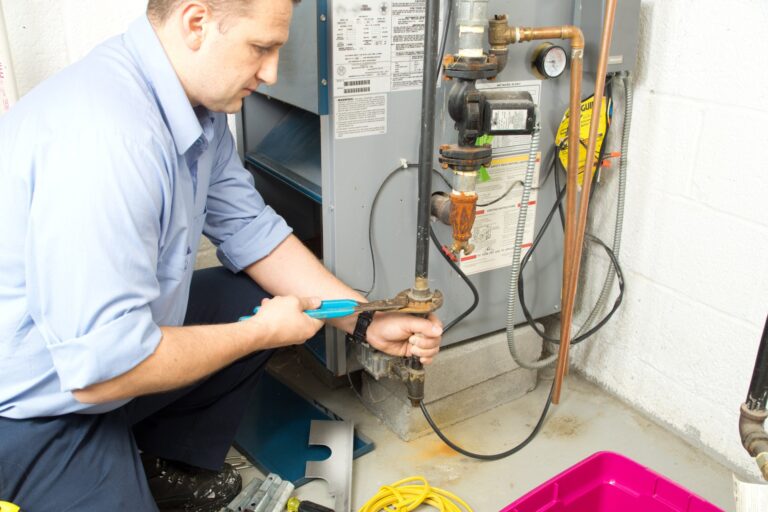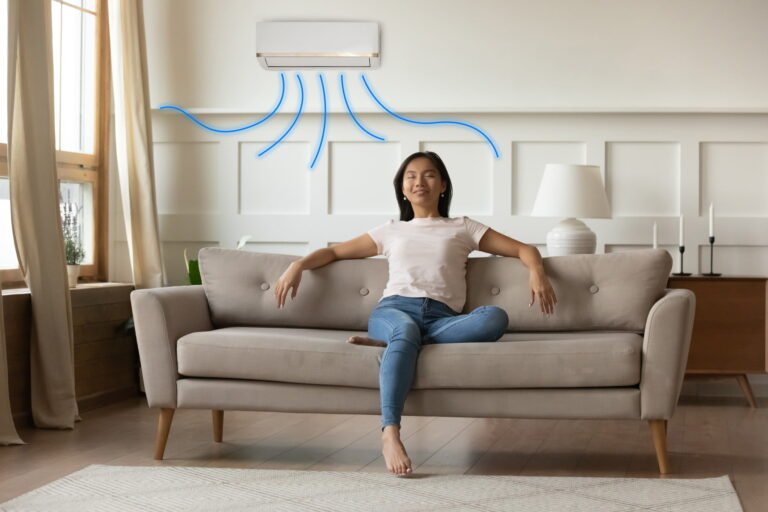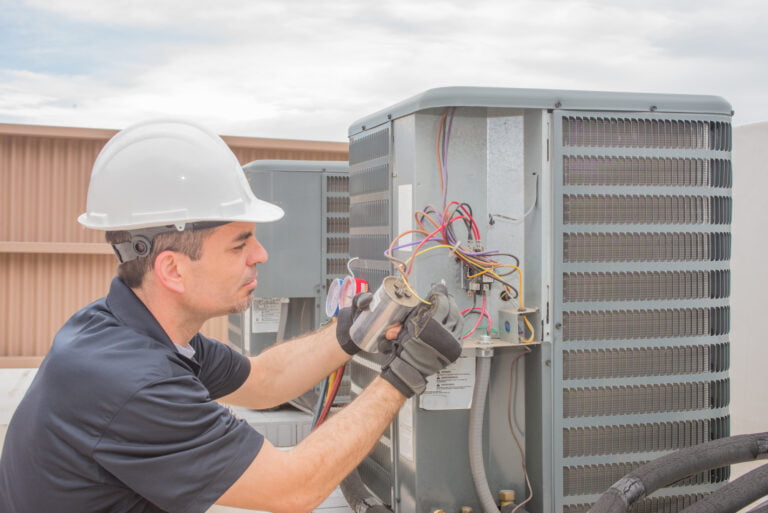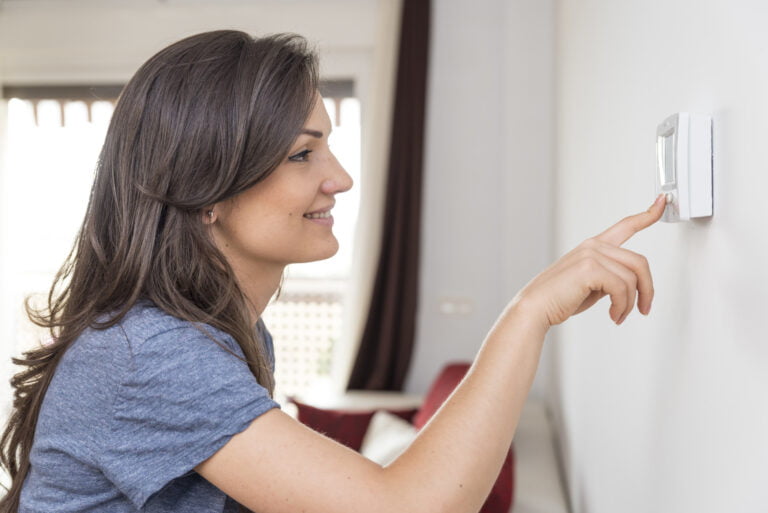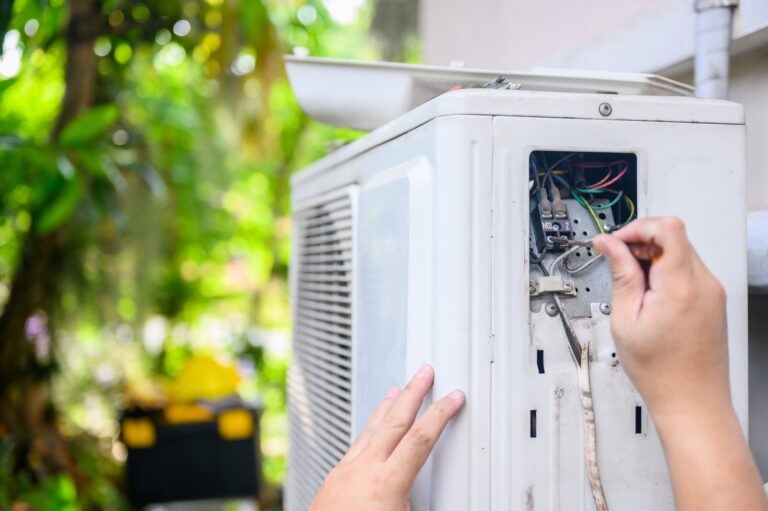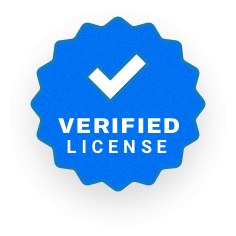This summer, you likely felt the impact of scorching temperatures. Keeping homes cool during the recent heat waves, resulted in high energy bills for many homeowners. It also contributed to an increase in greenhouse gas emissions.
When you think about the fact that 80% of fossil fuel CO2 emissions come from the use of natural gas, that’s a big deal.
You can help offset the impact of CO2 emissions and natural gas consumption by upgrading your heating and cooling system with an electric furnace and air conditioner.
In this article, we’ll share five compelling reasons to consider this type of upgrade. We’ll also talk about the benefits of combining electricity and solar power to cool your home.
1. Energy Efficiency and Cost Savings
When you think about energy efficiency, take a minute and gather your last several months of energy bills. If you notice a trend of higher costs for heating and cooling, you’re not alone.
The National Energy Assistance Directors Association estimates families will pay 12% more this year for energy costs. The primary reason is the unprecedented heat waves blanketing the country.
An energy-efficient heating and cooling system can help keep your energy costs manageable. An HVAC system that uses electricity wisely is like a super-efficient car that can go a long way on a little bit of gas.
Efficiency of Solar Power
Now, imagine you have an electricity-generating machine on your roof. If you go with solar energy, it’s like having a set of mini-power plants using the sun’s energy to make electricity for your home.
When you use an electric HVAC system in tandem with solar panels, something amazing happens. The HVAC system works so efficiently, that you start spending less on energy costs.
How does that work?
Because the electric heating system and the solar panels do their jobs so well, you end up using less electricity from the power grid. When you use less electricity from the grid, your energy bills go down.
You’ll love what we consider the best part of this whole arrangement. If your solar panels make more electricity than your HVAC system needs, you can sell the extra electricity back to the power company.
2. An Electric Furnace and Solar Equals Eco-Friendly
If you’re looking for a way to reduce your carbon footprint, a logical way to do that is to install an electric furnace and air conditioner. Then, add solar panels to the mix.
Solar is a magical energy source. It never runs out and doesn’t create pollution.
Solar energy comes from the sun, which always shines, especially in Southern California. Capturing the sunlight when you use solar panels allows you to turn that energy into electricity without releasing harmful chemicals into the air.
Okay, we know California has its share of cloudy days, but solar energy still works even when the sun doesn’t shine. A solar system stores the energy, so you’ll have plenty of electricity when the sun doesn’t shine. Besides, you’ll still have the electric HVAC system connected to the power grid.
A new electric heating system is better for the environment compared to some older heating and cooling systems. But when you team up your electric HVAC system with solar power, your entire home starts to run on clean energy.
3. Energy Independence and Resilience
As if saving on energy costs and reducing your carbon footprint isn’t enough, there are other benefits of solar and electric HVAC systems.
You can gain independence from the power grid. You won’t need to rely as much on your power company to keep the lights on and your home comfortable. Your solar panels can generate electricity even when the grid fails.
Remember earlier we mentioned that solar energy can work on cloudy days? Residential solar systems use lithium-ion batteries. The batteries store energy, which means you have a reserve for those days when the sun doesn’t shine.
If you’re a person who wants to be more self-reliant, combining solar power with your electric HVAC system is a great way to do it.
4. Incentives and Tax Credits
When you upgrade to an electric furnace and air conditioner, you may qualify for rebates on the equipment. Make sure to ask when you start shopping for a new system. Your HVAC representative should have a list of the qualifying products.
The federal government and many state governments offer incentives, tax credits, and rebates when you install solar panels and energy-efficient electric HVAC systems. These financial incentives can offset a significant portion of the installation costs.
Incentives help make the transition to clean energy more affordable.
5. Energy Security and Future-Proofing
Hearing daily news reports of rising costs and energy shortages puts fear into every person living on this planet. Of course, you have to listen with one ear to the news because it’s the journalists’ job to create attention-grabbing content.
That said, energy security is something you do want to know about because you need to make sure you always have enough electricity.
Solar panels help you take control. When you pair them with an electric HVAC system, you rely less on energy companies and their rising prices. You’ll have stable and predictable energy costs, even if energy prices go up.
Future-proofing means preparing for the future, particularly with energy. Solar power is a smart choice. It doesn’t rely on fuels that continue to cost more.
Using solar power and upgrading to a new air conditioner and electric furnace is like planning ahead. You can protect your home and budget from energy price hikes.
Ready to Take the Next Step?
Upgrading to an electric furnace and air conditioning system, combined with solar power, offers a multitude of benefits. Take charge of your energy and ensure a sustainable, comfortable future for your home.
For a personalized estimate and expert guidance on your journey toward an energy-efficient home contact AirPro today. We’re a local, family-owned HVAC business. Our mission is to offer the highest quality service at the lowest prices.
Let’s make your home eco-friendly and cost-effective. Request your estimate now!


